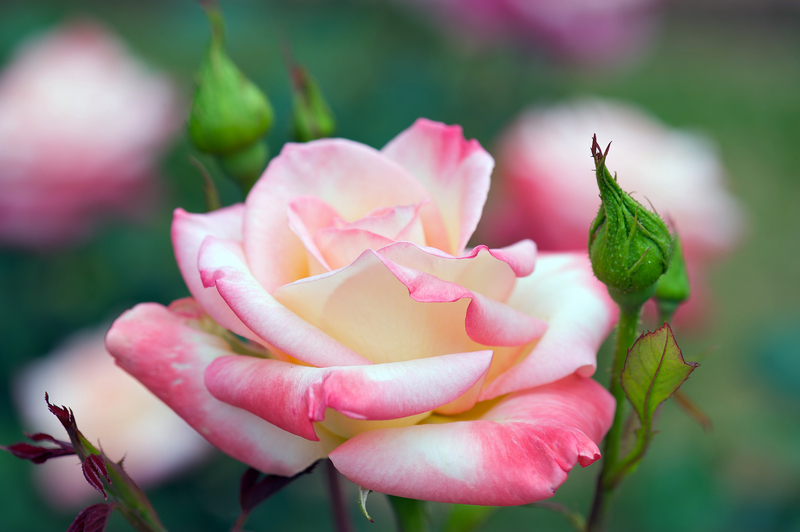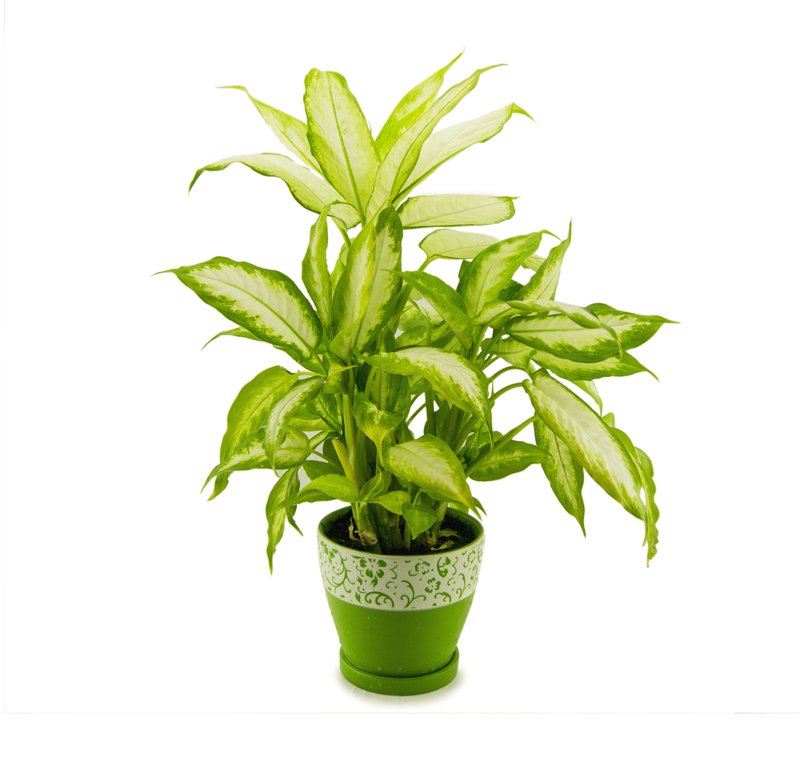Create a Haven of Peace: Zen Garden Design Tips
Posted on 03/09/2025
Create a Haven of Peace: Zen Garden Design Tips
If you're seeking tranquility and a sanctuary from the hustle and bustle of daily life, nothing quite rivals the serenity of a Zen garden. These beautiful, minimalist landscapes are rooted in centuries-old Japanese tradition, designed to encourage meditation, mindfulness, and inner peace. In this comprehensive guide, you'll discover everything you need to know to create a peaceful haven through thoughtful Zen garden design--from essential elements and layout strategies, to plant choices and maintenance tips. Unlock the art of Zen garden landscaping and transform your outdoor space into a place of calm and harmony.
What Is a Zen Garden?
A Zen garden, also known as a Japanese rock garden or Karesansui, is a stylized landscape used for meditation. Originating in Japan, Zen gardens traditionally feature rocks, gravel, sand, moss, and minimal vegetation--all meticulously arranged to inspire reflection and mindfulness. The simple, asymmetrical design and use of natural materials is intended to evoke the essence of nature, fostering a peaceful atmosphere for contemplation. These gardens are perfect for both large outdoor spaces and compact courtyards, offering a soothing retreat from everyday stress.

Core Principles of Zen Garden Design
To design a Zen garden is to embrace certain philosophical principles. These underpin the unique aesthetic and feeling of peace a Zen garden provides. Let's explore the basics:
- Simplicity (Kanso) - Favor clean lines, uncluttered arrangements, and essential elements only.
- Naturalness (Shizen) - Opt for organic, imperfect forms that mimic the randomness of nature.
- Asymmetry (Fukinsei) - Embrace uneven placement and odd numbers to promote natural balance instead of rigid symmetry.
- Tranquility - Every element should promote a sense of calm, meditation, and understated elegance.
- Symbolism - Many features in Zen gardens are symbolic, such as rocks representing mountains or water features standing for calm streams.
Essential Elements of a Zen Garden
A peaceful Zen garden design employs select, carefully arranged features. Incorporate these main elements for authentic results:
1. Rocks and Stones
Large rocks or stone arrangements serve as the garden's backbone. In Zen tradition, rocks might symbolize islands, sacred mountains, or animal forms. Choose stones of different sizes and shapes, and place them asymmetrically to mimic a natural landscape.
- Placement: Bury rocks partway for a natural look.
- Groupings: Arrange in groups of odd numbers for visual harmony.
- Color and Texture: Select stones that complement the existing environment.
2. Gravel, Sand, or Pebbles
Fine gravel or white sand is often used to represent water or open space in a Zen landscape. The surface is meticulously raked into patterns--straight lines for calm waters, swirls for flowing streams--which invites meditative contemplation.
- Maintenance Tip: Rake the sand or gravel regularly to keep patterns crisp and symbolic.
- Material Choice: White or light-colored materials enhance the feeling of openness and serenity.
3. Moss and Minimalist Planting
Classic Japanese Zen gardens often use moss for texture and greenery. Ideally, plantings in a Zen garden are sparse, allowing negative space to create balance and composure.
- Moss: Resistant to drought and foot traffic, moss thrives in shaded, moist environments.
- Bamboo: Hardy and lends an Asian aesthetic (use sparingly to avoid crowding).
- Evergreens: Dwarf pines, azaleas, or camellias maintain their shape and color year-round.
4. Water Features
While many Zen gardens rely on "dry" landscapes, water features can amplify tranquility. Thoughtfully designed ponds, basins, or bamboo fountains (shishi-odoshi) add soothing sound and movement.
- Reflective Pools: Still water reflects the sky and heightens the sense of spaciousness.
- Stone Basins: Symbolic of purity and used for ritual cleansing, usually placed near a garden entrance.
- Fountains: Use discreetly to preserve the garden's sense of stillness.
5. Pathways and Bridges
Paths lead visitors through the garden, encouraging slow, mindful movement. Use stepping stones, gravel paths, or simple wooden bridges to blend seamlessly with the landscape, guiding the eye and foot with intention.
- Irregular Forms: Avoid straight lines to maintain a natural, organic feel.
- Material: Match walkways with the garden's overall look--stone, wood, or gravel work best.
Planning Your Zen Garden Layout
To create a peaceful Zen garden sanctuary, begin with a thoughtful layout:
Step 1: Choose Your Space
Zen gardens can be adapted to front yards, backyards, patios, or even indoor spaces. Select an area that receives some shade (moss prefers dappled light) and is relatively sheltered from strong winds and heavy rain.
Step 2: Create a Sketch
Start with a rough sketch or use landscape design software to experiment with rock, gravel, and plant placement. Keep the design simple and leave ample negative space for meditative effect.
Step 3: Prepare the Ground
- Remove existing grass, weeds, and debris.
- Lay down landscape fabric to control weed growth.
- Add a layer of sand or crushed granite for stability beneath gravel or stones.
Step 4: Place Stones and Features
Begin by positioning your largest rocks and stones, then move on to pathways, water features, and finally, plant minimal greenery for contrasting texture and color.
Choosing the Best Plants for Zen Gardens
While Zen gardens are minimalist, the selected plants play a vital role in fostering year-round peace and subtle beauty. Opt for:
- Moss: For carpets of soft green and excellent drought tolerance.
- Japanese Maple (Acer palmatum): Offers delicate, intricate leaves and elegant form.
- Bamboo: Adds structure and gentle motion with the breeze.
- Camelias, Azaleas: Flower softly without overwhelming the scene.
- Dwarf Conifers: Keep shapes neat and colors consistent through the seasons.
Avoid using bright, showy flowers or invasive groundcovers, as these can detract from the meditative simplicity of your Zen-inspired garden.
Personalizing Your Zen Retreat
Like all forms of art, Zen garden landscaping allows for personal touches. Here are ways to individualize your haven of peace:
- Lanterns - Add stone lanterns as focal points, evoking classic Japanese gardens.
- Bonsai Trees - Incorporate one or two small, carefully pruned bonsai for artistic flair.
- Seating - Include a simple bench or flat rocks for meditation and quiet contemplation.
- Sculpture - Subtle, abstract sculptures can complement the garden's overall calmness.
Remember, less is more. Avoid overcrowding the space or including too many decorative elements, which can disrupt the essential balance of your Zen oasis.
Maintaining Your Zen Garden
A true haven of peace is kept neat and thoughtfully maintained, yet the ritual of caring for a Zen garden is meditative in itself. Consider these maintenance tips:
- Rake patterns in gravel/sand regularly to restore the sense of order and tranquility.
- Trim plants and remove weeds frequently to preserve the minimalist structure.
- Clean and reposition rocks or ornaments as needed after heavy weather or seasonal changes.
- Moss care: Keep moist in dry periods and lightly rake to remove debris and promote healthy growth.
Benefits of a Zen Garden Sanctuary
Designing and spending time in your own peaceful Zen garden offers a wealth of benefits beyond aesthetics:
- Mental Clarity: The minimalist design and repetition of raking fosters relaxation and mindfulness.
- Stress Relief: Connection with nature and meditative routines lower stress levels.
- Low Maintenance: Once established, Zen gardens require less upkeep than traditional flower beds.
- All-Season Appeal: Evergreen plants and stone features maintain beauty throughout the year.
Inspirational Ideas for Small Spaces
Limited on space? Compact courtyards, patios, or balconies are perfect for miniature Zen gardens. Try these creative ideas:
- Tabletop Zen Gardens: Create a small tray with sand, rocks, and a bamboo rake for desktop calm.
- Potted Moss Gardens: Use shallow dishes or pots for moss and a single stone, perfect for contemplation in small nooks.
- Vertical Zen Gardens: Install a living wall with moss, ferns, and minimalist stone accents.
- DIY Kits: Purchase or craft your own Zen garden set for instant, portable peace.

Common Mistakes to Avoid in Zen Garden Design
Even well-intentioned projects can go off track. Keep your Zen garden landscaping on the right path by evading these frequent missteps:
- Overcrowding: Resist the urge to add too many plants or ornaments.
- Neglecting Maintenance: Regular care is essential for preserving calmness and beauty.
- Ignoring Local Climate: Choose plants and materials that thrive in your area.
- Disregarding Negative Space: Allow generous open areas for balance and visual breathing room.
Closing Thoughts: Cultivate Your Own Haven of Tranquility
Creating a Zen garden is more than just a landscaping project; it's a journey toward harmony, mindfulness, and a closer relationship with nature. By embracing classic design principles, selecting suitable elements, and personalizing with intention, you'll transform your outdoor or indoor area into a lasting retreat. Whether your goal is to inspire meditation, reduce daily stress, or simply enjoy a tranquil view, these Zen garden design tips will help you build a true haven of peace right at home.
Start your Zen garden journey today--discover the solace that a balanced, meditative landscape can bring to your life.
Latest Posts
Canine Companions in the Garden: Making it Work
Revolutionize your garden to support a healthier planet
Garden Smart: Low Maintenance Strategies on a Budget

